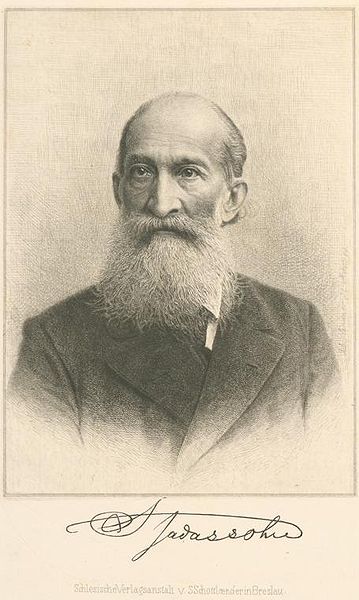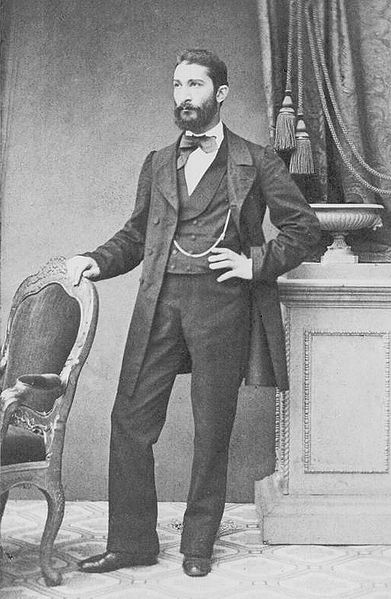<Back to Index>
- Biochemist Frederick Sanger, 1918
- Composer Salomon Jadassohn, 1831
- King of Castilla y León Alfonso XI el Justiciero, 1311
PAGE SPONSOR


Salomon Jadassohn (13 August 1831 – 1 February 1902) was a German composer and a renowned teacher of piano and composition at the Leipzig Conservatory.
Jadassohn was born to a Jewish family living in Breslau, the capital of the Prussian province of Silesia. This was a generation after the emancipation of the Jews in Central European German speaking lands and during a time of relative tolerance. First educated locally, Jadassohn enrolled at the Leipzig Conservatory in 1848, just a few years after it had been founded by Felix Mendelssohn. There he studied composition with Moritz Hauptmann, Ernst Richter and Julius Rietz, as well as piano with Ignaz Moscheles. At the same time, he studied privately with Franz Liszt in Weimar.
Because he was Jewish, Jadassohn could not qualify for the many church jobs as music directors or organists which were usually available to Christian graduates of a conservatory such as Leipzig, as they required deep knowledge of Christian liturgy and practice. Instead he worked for a Leipzig synagogue and a few local choral societies as well as teaching privately. Eventually, he was able to qualify for a position at the Leipzig Conservatory, teaching piano and composition.
Over the years, he became a renowned teacher, and Edvard Grieg, Ferruccio Busoni, Frederick Delius, Paul Homeyer, Richard Franck, Sigfrid Karg - Elert, Ruben Liljefors, Emil Reznicek and Felix Weingartner were among his many students. Americans also studied with him, including the song composer Jean Paul Kürsteiner and George Strong, a composer of the late 19th and early 20th century. The
general consensus is that Jadassohn and his music were not better known
for two reasons: the first is the pre-eminence of his contemporary Carl Reinecke.
Reinecke was a world famous piano virtuoso and composer, but also an
important professor at the Leipzig Conservatory, where Jadassohn taught.
Reinecke later served as its director and, at the same time, held the
post of conductor of the renowned Leipzig Gewandhaus Orchestra. Secondly was the influence of the rising tide of antisemitism in late 19th century Wilhelmine Germany.
In the wake of Wagner, many music critics attacked Jadassohn's works,
labeling it academic and dry, epithets which have stuck with it since.
Since his death, his music has been seldom performed, but in the 21st
century, a reevaluation of it has begun with new performances and recordings. His Concerto for Piano and Orchestra No. 1 Op. 89 in C minor was performed to acclaim at a public premiere (since his death) by soloist Valentina Seferinova and the Karelia State Philharmonic Orchestra (Musical Director: Marius Stravinsky; Conductor: Denis Vlasenko) in Petrozavodsk, Russia, on 20 December 2008. A CD recording of this live performance was issued by Cameo Classics in January 2009. Hyperion Records released a recording of Jadassohn's two piano concertos. The record label cpo has announced they will be recording and releasing all four of Jadassohn’s symphonies with Israel Yinon and the Nordwestdeutsche Philharmonie. Some of these recordings have already been made and broadcast on local radio stations.
Jadassohn composed more than 140 works in virtually every genre, including four symphonies, two piano concertos, lieder, sonatas, opera and a considerable amount of chamber music, including a string quartet, four piano trios, three piano quartets, three piano quintets and a serenade for flute and string quintet. These chamber works rank among his finest compositions. Considered a master of counterpoint and harmony, he was also a gifted melodist, following in the tradition of Mendelssohn. His works also show the influence of Wagner and Liszt, whose music deeply impressed him. In addition, he wrote several important books on composition and music theory.